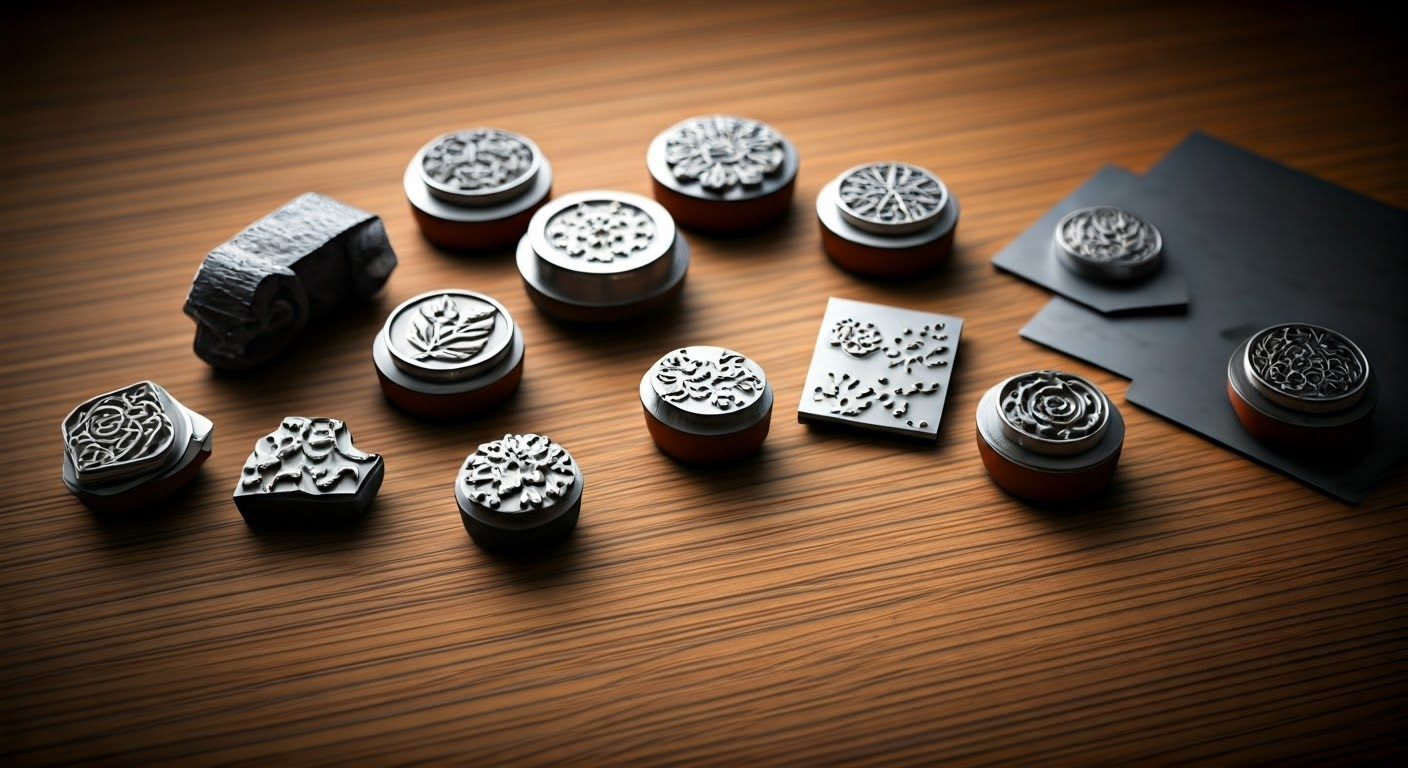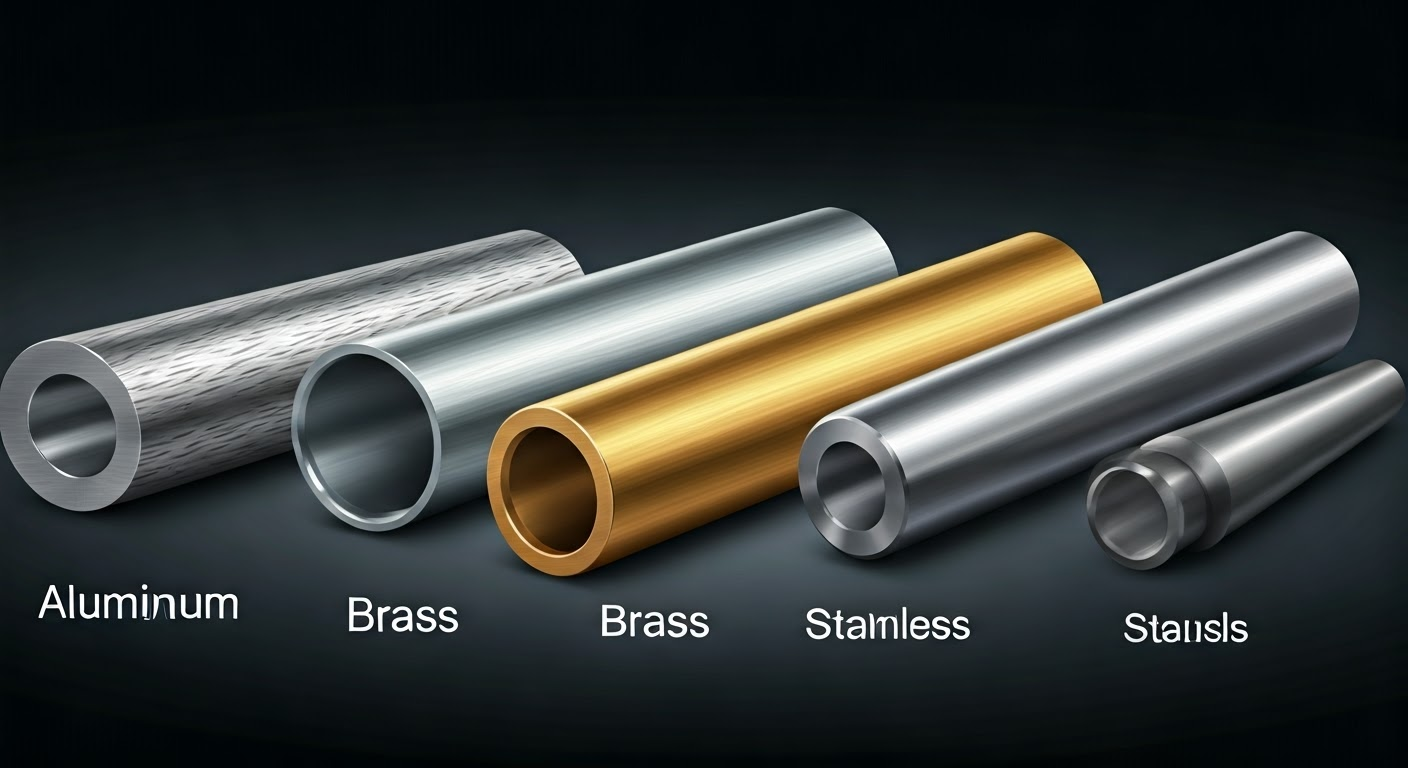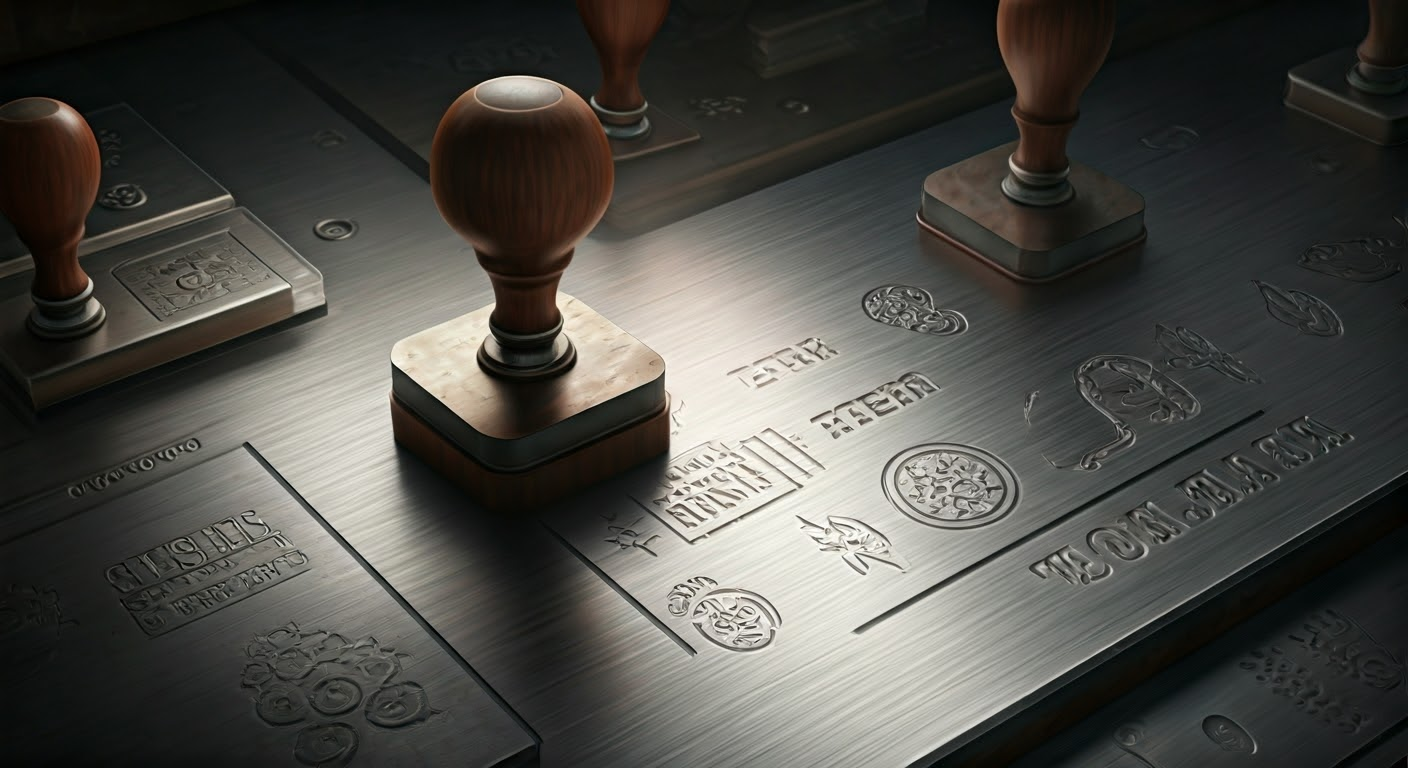What tools are needed to emboss a metal stamp?
Key Highlights
- Custom metal stamps offer a unique way to personalize metal surfaces with logos, designs, or text.
- These stamps provide a lasting and professional finish, ideal for branding items, creating artistic pieces, or adding unique touches.
- Various metals, including aluminum, brass, and stainless steel, can be embossed, each offering distinct properties and aesthetics.
- The process involves using a stamp with a raised design that is pressed into the metal, creating a embossed impression.
- From branding irons for crafting projects to customized stamps for industrial applications, there is a wide range of options available.
Introduction
Custom metal stamps provide a versatile solution for adding unique and permanent markings onto various surfaces. However, their application extends far beyond traditional crafting. Embossing, the process of creating a raised design on a material, finds its use cases in industrial settings, product branding, and personalized gifts. This blog will explore the significance of custom metal stamps in detail, examining their use, the metals suitable for the process, and the benefits they bring to various creative and industrial endeavors.
The Importance of Custom Metal Stamps in Modern Crafting

The art of stamping has been practiced for centuries, evolving from rudimentary tools to the sophisticated custom metal stamps available today. What was once a method primarily used for marking ownership or authenticity has now become an avenue for personalization and branding. A custom branding iron, for instance, can transform ordinary leather goods, wooden crafts, or even food items into unique, personalized creations.
The ability to emboss a logo, design, or even simple text onto a product adds a layer of professionalism and sophistication that captures attention. This is particularly valuable for small businesses and artisans seeking to establish a brand identity that stands out. From bespoke jewelry pieces to handcrafted wooden toys, custom metal stamps bring an element of exclusivity and artistry to every creation.
Enhancing Brand Identity Through Personalized Metal Stamps
In today’s competitive market, establishing a strong brand identity is crucial for any business, regardless of size. A custom branding iron stamp offers an effective and affordable way to make a lasting impression. By imprinting a unique logo onto products, packaging, or promotional materials, businesses create a visual representation of their brand that resonates with customers.
A well-designed custom branding iron stamp goes beyond simply adding a logo; it conveys the brand’s values, style, and commitment to quality. When customers see a consistently branded product, it fosters a sense of trust and recognition. Moreover, personalized metal stamps are not limited to physical products.
They can be used to add a touch of elegance and professionalism to paper goods such as business cards, invitations, or thank-you notes. A custom embossed logo on these items elevates the brand image, leaving a lasting impression on clients and associates.
The Role of Precision in Metal Embossing Techniques
Achieving high-quality results in metal embossing hinges on precision. The accuracy of the embossed impression is directly tied to the design and craftsmanship of the metal stamp. A perfectly crafted stamp will render sharp, defined lines and intricate details in the metal, enhancing both the visual appeal and the tactile experience of the artwork.
The depth of the engraving on the stamp is another critical factor in obtaining a well-defined embossed impression. A shallow engraving may result in a faint, barely noticeable mark, while an overly deep engraving can distort the metal or compromise its structural integrity. The material of the metal being embossed also influences the level of precision achievable.
Softer metals like aluminum are generally more forgiving, allowing for intricate designs and deeper impressions. Conversely, harder metals like stainless steel require greater force and precision to achieve the desired results.
Types of Metals Suitable for Embossing

A range of metals is well-suited for embossing, each offering a unique set of characteristics that impact the final result. Aluminum, prized for its lightweight and malleable nature, readily accepts intricate designs. Conversely, the robust nature of stainless steel ensures longevity, making it suitable for applications requiring durability.
Brass, sitting between aluminum and stainless steel in terms of hardness, provides a balanced approach. It offers the longevity needed for frequent use while still allowing for intricate details, making it a popular choice for custom stamps.
Choosing Between Aluminum, Brass, and Stainless Steel
The choice of metal for a custom embossing stamp often depends on the intended application and the desired outcome. Here’s a breakdown to consider:
- Aluminum: Ideal for its lightweight and affordability. Easier to work with and allows for intricate designs.
- Brass: A balance of durability and detail. Excellent for frequent use and provides a classic, antique finish.
- Stainless Steel: The most durable option. Withstands heavy-duty use and resists corrosion but can be more challenging for intricate designs.
Understanding the specific qualities of each metal is crucial in selecting the most suitable material for a custom embossing project. Aluminum might be perfect for creating personalized jewelry due to its lightweight and intricate design capabilities. In contrast, a stainless steel stamp would be more suitable for industrial marking requiring resistance to wear and tear.
By carefully assessing the project needs and the characteristics of each metal, one can ensure optimal embossing results and a final product that meets the specific requirements.
Understanding Metal Properties for Optimal Embossing Results
Beyond the metal type, several factors affect a custom embossing project. Knowing these factors ensures optimal results and a polished, professional outcome. For instance, the thickness of the material plays a crucial role. Thinner metals are easier to emboss, requiring less force to achieve the desired depth.
Similarly, the hardness of the metal determines the pressure required during stamping and affects the level of detail achievable. Softer metals, like aluminum, deform easily, allowing for finer details, while harder metals necessitate greater force.
|
Metal Property |
Description |
Impact on Embossing |
|
Hardness |
Measures a material’s resistance to deformation. |
Harder metals require higher pressure for a clear impression. |
|
Malleability |
A material’s ability to deform under pressure. |
More malleable metals allow for intricate designs. |
|
Durability |
Resistance to wear and tear over time. |
Durable metals are ideal for stamps used frequently. |
|
Thickness |
Impacts the force required for embossing. |
Thinner metals are easier to emboss. |
By understanding how these properties interact with the embossing process, one can select the best metal for a given project, ensuring the final product meets the required standards of durability, detail, and overall quality.
Conclusion
In conclusion, custom metal stamps offer a unique way to enhance brand identity and elevate modern crafting projects. Precision in metal embossing techniques plays a vital role in achieving optimal results. Understanding the properties of metals like aluminum, brass, and stainless steel is crucial for successful embossing. By choosing the right metal and utilizing customized stamps, you can create stunning embossed designs that truly stand out. Whether for personal or professional use, exploring the world of custom metal stamps opens up a realm of endless creative possibilities.
Frequently Asked Questions
What materials can you use with metal stamps for embossing?
Metal stamps work exceptionally well on various materials besides metal. Leather, paper, wood, clay, and even food items like fondant can be beautifully embossed using an embossing die set and a hammer or press. While ink isn’t required for the impression itself, you can add ink to the stamp for a more pronounced, longer-lasting effect, especially on porous surfaces like paper or wood.


0 Comments